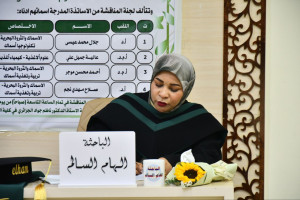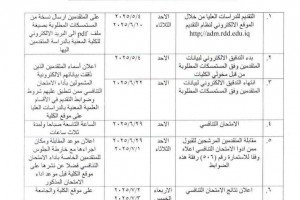
A doctoral thesis in the Department of Plant Protection at the College of Agriculture at the University of Basra examined Fusarium wilt disease and its interactions with heavy metals and salinity in determining the biochemical and physiological response patterns of some tomato cultivars in Basra Governorate soils. The thesis was attended by the Assistant President for Scientific Affairs, Assistant Professor Dr. Haider Khazal Mahbas, and the Scientific Assistant to the Dean of the College of Agriculture, Professor Dr. Sadiq Jabbar Mohsen.
The thesis, presented by postgraduate/doctoral student Nasreen Jafar Razzaq and supervised by Professor Dr. Muhammad Hamza Abbas and Professor Dr. Khairallah Musa Awad, aimed to study important practical aspects to understand the nature of interactions between the highly dangerous vascular wilt disease of tomato plants in areas where this plant is grown, and abiotic factors, such as heavy metals and salinity, on the growth and development of tomato plants in Basra Governorate.
The thesis concluded that sensitive cultivars should be avoided and that varieties that have demonstrated high levels of tolerance to the disease and abiotic factors should be adopted. The thesis recommended the need to implement soil improvement programs to reduce the impact of pollutants and to adopt modern technologies for treating saline soils to minimize the damage caused by this disease.
Department of Media and Government Communication/College of Agriculture







